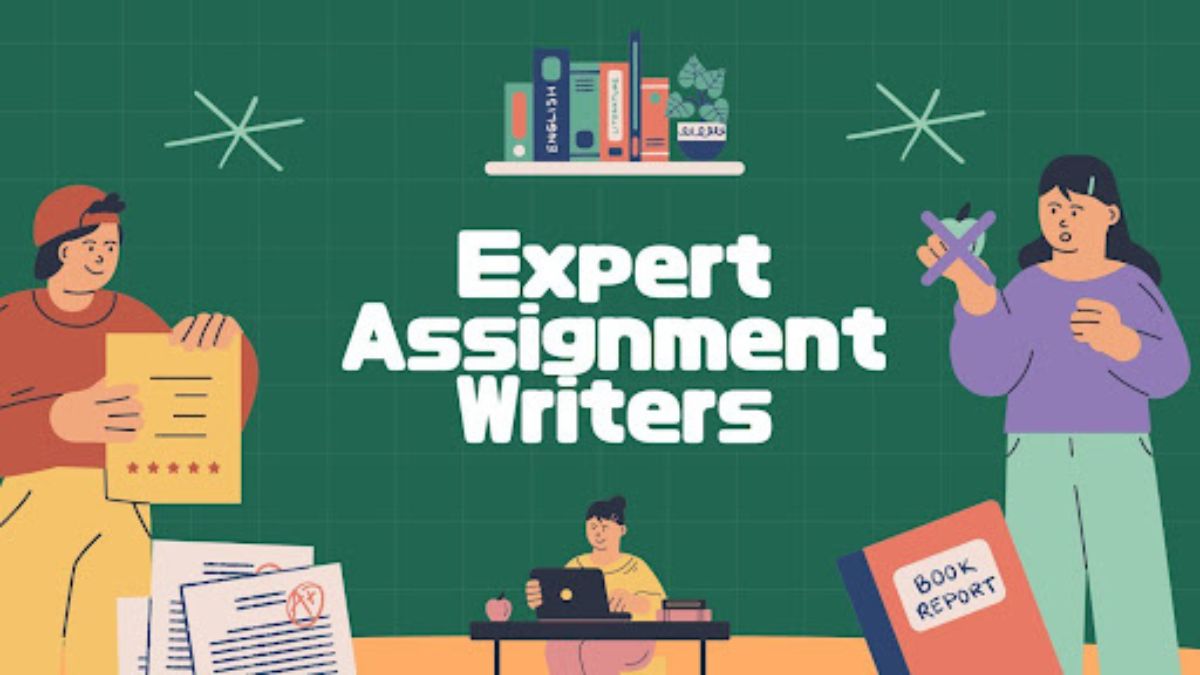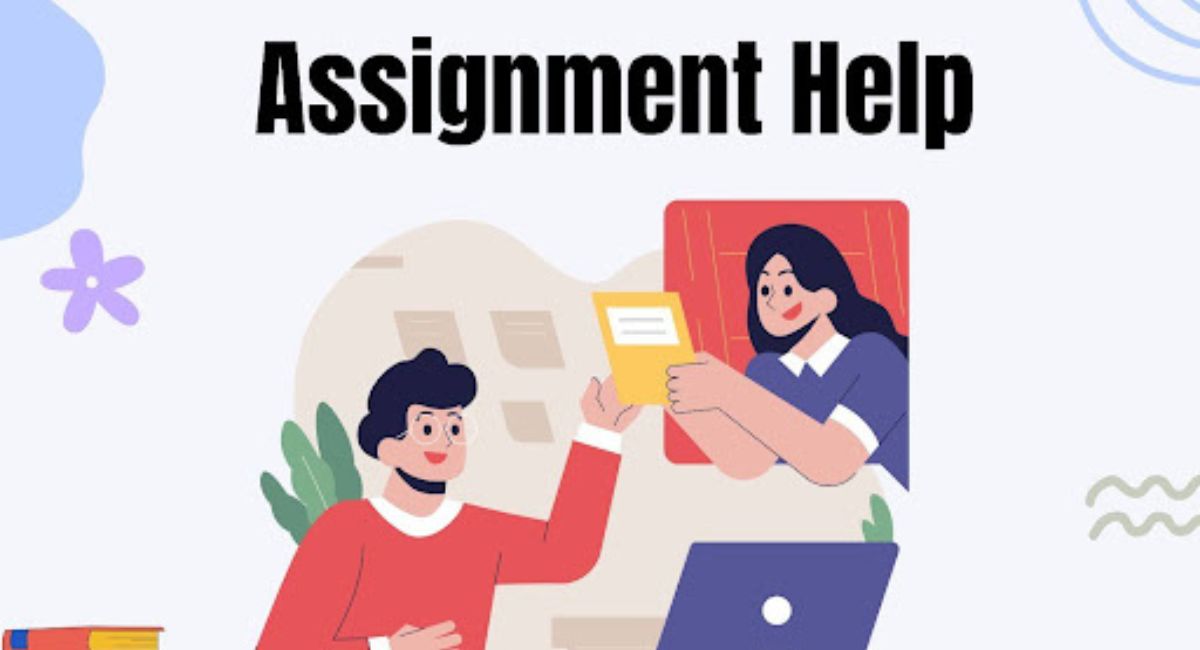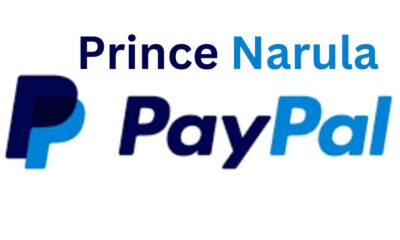EDUCATION
Who Are Assignment Writers and How Do They Assist Students?

Of course, no student is new to assignments. Assignments—be it essays, research papers, or even projects—come with a lot of hurdles. Sometimes, you simply get confused due to deadlines and the complexity of topics, all while dealing with the pressure to deliver good work. That’s when assignment writers step in. They are professionals who will guide you in completing your assignments effortlessly. In this blog post, we will dive deeper into who assignment writers are, how they help students, and why you may want to consider using their services. By the end of this, you’ll be clear on how these services can assist your student self in the UK and beyond!
Who are Assignment Writers?
First off, let’s define what assignment writers are. Assignment writers are highly qualified professionals in various academic fields. They specialize in writing assignments according to the specific requirements of a student. These writers possess expertise in education, research, and assignment writing. They can assist with various tasks such as essays, dissertations, case studies, lab reports, and much more.
The assignment writer could be from freelancing platforms or academies specializing in academic writing. Their role is to cater to the needs of students who are overwhelmed by the demands of campus life. A lack of time is a common reason why students seek assistance. When they find themselves unable to make sense of assignments or simply need someone to make their workload easier, these professionals step in.
Over the past years, these services have seen an increase in demand, especially in the UK, mainly due to the pressure placed on students by high academic standards. The good thing about using an assignment expert is that they can tackle even the most complex topics. This way, students are left with more time to deal with other academic matters.
How do Assignment Writers Assist Students?
1. Academic Writing Expertise
The primary way assignment specialists facilitate students is through their background in academic writing. Assignments and essays follow specific rules. The key differences in academic writing are not just about stringing words together, but about delivering work that adheres to academic standards, which can be overwhelming for students under pressure.
Professional writers understand the required format, tone, and style for different types of assignments. They are familiar with citation styles such as APA, MLA, Harvard, and Chicago, ensuring that their work is formatted correctly according to university or professor guidelines.
By outsourcing your work to a professional writer, your assignment will be well-researched, properly formatted, and at the appropriate academic level. This saves you a lot of stress that comes with completing assignments.
2. In-depth Research
Research is one of the most crucial elements of any assignment. Students often struggle to find the right sources and summarize information. While assignment writers conduct research, they become experts in specific fields, going through academic journals and databases to gather the most relevant and reliable information for your task.
A professional writer can research a 1,000-word essay or even a 10,000-word dissertation, scouring credible sources for data. Their research process ensures that the details in your assignment are correct, up-to-date, and well-supported by evidence. This is incredibly beneficial for students who lack the time or resources to conduct exhaustive research themselves.
3. Proper Time Management
As a student in the UK, you likely have a lot of assignments, exams, and extracurricular activities to manage simultaneously. Time management is essential, but balancing everything can be difficult. Professional assignment writing services can make a real difference in such situations.
When overwhelmed by too many assignments and tight deadlines, an assignment writer can be a savior. This service alleviates the stress of multiple submissions, freeing up time to focus on exams or even enjoy some personal time. Since time is precious, utilizing professional writing services ensures timely submission without compromising the quality of the work.
4. Content Free of Plagiarism
Plagiarism is a major concern for students when writing assignments. With easy access to online research and readymade information, it can be easy to unknowingly copy someone else’s work. However, plagiarism can lead to severe academic consequences or even expulsion.
Most writing services have a strict anti-plagiarism policy. All the work they produce is 100% original, properly cited, and free of plagiarism. Many services even provide a plagiarism report with the assignment, so you can rest assured. This ensures that you avoid the risks of plagiarism and submit high-quality work every time.
5. Personalization and Customization
Another major advantage of hiring professional writers is the ability to get customized assignments. You can provide clear instructions regarding the requirements for your assignment, preferred writing style, and tone. The assignment experts will take these into account to ensure that your work meets your professor’s expectations and aligns with your academic goals.
Customized support helps ensure that the final product reflects your personal style of thinking while still adhering to academic standards. Whether you need just an introduction or a fully written paper, writers are willing to fulfill all requirements.
6. Improving Academic Skills
While essay writing services help students complete assignments, they also aid in improving academic performance. The process isn’t just about outsourcing work but learning from professionals. Through working with expert writers, students can develop necessary skills such as research techniques and an understanding of proper assignment structures, which contribute to academic growth.
Why Are Students Hiring Assignment Helpers?
Here are some common reasons why students choose to hire assignment helpers:
1. Lack of Time
With full schedules of classes, exams, part-time jobs, and social activities, students often find it impossible to dedicate enough time to write comprehensive assignments. Hiring a professional writer helps ease the burden and ensures that assignments are completed on time.
2. Academic Struggles
Not all students are experts in every subject. Some topics may seem difficult to grasp, or a student may lack the necessary skills to write a well-structured assignment. Professional writers are experts in specific fields, providing the knowledge and support needed to meet academic standards.
3. Perfectionism
Some students strive for perfection. Whether it’s an important essay or dissertation, they may want to ensure that their work is flawless. Professional writers can fine-tune assignments, improving both content and presentation to ensure the work is up to the mark.
4. Uncertainty About Formatting
Different assignments require different formats. Depending on the citation style, students may feel confused about how to properly structure their work. Professional writers know how to format assignments correctly, making it easier for students to impress their professors.
How to Choose the Best Assignment Writing Service
With so many services available, choosing the right one can be overwhelming. Here are some things to consider when selecting an assignment writing service:
1. Reputation and Reviews
Research the reputation of the service. Look for reviews and feedback from other students who have used the service to gauge the quality of the work and customer experience.
2. Expertise in Your Field
Different writers specialize in different academic fields. If you’re studying law, for example, it’s important to choose a service that offers writers with expertise in that specific area.
3. Punctuality
Deadlines are crucial in academia. Choose a service that can meet deadlines and deliver quality work on time. Many services even offer urgent writing options for tight deadlines.
4. Customer Support
Reliable customer support is essential. Opt for services that offer 24/7 support, so you can contact someone at any time to track your order or clarify your requirements.
Conclusion
If you are a student in the UK or anywhere else, the pressure to perform well academically can be overwhelming. From tight deadlines to complex topics, sometimes it’s difficult to handle everything. Assignment writers can help by providing professionally prepared, researched, and customized work that meets your goals. If you’re feeling overwhelmed and need assistance with your next assignment, it may be worth seeking professional help. Services like Assignment in Need (assignnmentinneed.com) ensure that you receive high-quality, plagiarism-free work tailored to your specific requirements. Regardless of the reason—whether it’s lack of time, poor grades, or just the desire for a perfect assignment—professional writers are available to support you on your academic journey.
EDUCATION
How to Write a CV That Will Stand Out to Employers

When entering the job market, one of the most important tools at your disposal is your CV (curriculum vitae). It’s your first opportunity to impress a potential employer, so making it stand out is crucial. Whether you’re applying for your first job, an internship, or a graduate position, crafting a compelling CV can make all the difference.
A well-written CV doesn’t just list your qualifications – it tells your professional story in a way that shows employers why you’re the right fit for the role. In today’s competitive job market, knowing how to write a CV that stands out is essential for success.
If you are suffering from a crisis in workload or multi-jobbing across many applications, then assignment help will guide you to write the ideal CV, so your job application is as capable as your education. In this highly educative guidebook, we shall dissect each and every component of the ideal CV into pieces and also offer you practical advice on how to lead your desired profession.

Why is a CV so significant?
A CV is, of course, an advertisement. It’s your opportunity to market yourself, your skill, your experience, and your potential on a few tight but clear pages. Employers will be reviewing hundreds of CVs, so make yours stand out from the start. An effective CV allows the recruiters an opportunity to familiarise themselves at once with the reasons why you are the most appropriate individual for the job and how you can benefit the organisation.
Key Strengths of a Successful CV:
Explain your professional skill and qualifications.
Emphasizes your experience and success.
Provides evidence of your capability in tangible outcomes by demonstrating what you can produce.
Keeps your interview attitude upbeat by being enthusiastic about your professionalism and personality.
Let us now create a CV that will make you a top employer contender.
Key Ingredients of a Good CV
When you are building your CV to be effective, interesting, and businesslike, you must highlight several key attributes. These must be ranked in priority order and readily available so that potential employers can browse through at ease at first glance.
1. Personal Details and Contact Details
Placing your name, professional title (if any), phone number, and email address at the top of your CV, you may also put in a link for your LinkedIn profile or professional portfolio if needed.
- Name: Type in your full name.
- Phone Number: Update this number.
- Email Address: Type in a business email address (do not type nicknames or personal email addresses that are not professional).
- LinkedIn/Portfolio: If needed, type it in.
Make it concise and formal. Leave out such information as your home address, which is not needed on most contemporary CVs.
2. Personal Statement / CV Summary
Your personal statement or overview should be followed by your contact details. The brief paragraph gives you a chance to introduce yourself and inform potential employers what you can do. Mention your experience, skills, and career aspirations and relate it to the job for which you are applying.
How to Write a Good Personal Statement:
- Make it short: Keep it in 4-5 lines.
- Make it job-specific you are applying for: Describe your skills in the language used in the job you are applying for.
- Call out for positive strengths: Mention your best strengths, perhaps problem-solving ability, leadership ability, or technical ability.
- Avoid cliches: Use vague buzzwords “hard” and “team player” only if you can demonstrate them in a practical example.
For example, if you’re applying for a marketing role, your personal statement could highlight your experience with campaigns, digital marketing, and data analysis.
3. Education and Qualifications
Your education section should describe your education in reverse chronological order, beginning with the most recent qualification. You should include the name of the school of education, study duration, and degree or qualification completed. Graduates can also include major modules or areas of study major.
As a student, include your date of graduation and courses or study projects that would appeal to the employer.
What to Include:
- Name of institution (or secondary school if you are fairly new in the profession)
- Title of degree (e.g., BS in Business Administration)
- Dates attended
- Most important accomplishments or most important coursework
If it seems overwhelming to balance studying and having your CV just so, assignment help will keep you churning out assignments on time while you go on and focus on career hunting.
4. Professional Experience
The work experience section is your best section in your CV. It is the place where you will outline your work history and demonstrate future employers how your skills in practice can be transferred. List your current job at the top, and add any part-time work, internships, or volunteer posts.
For every job, state:
- Job title: State what job you were doing.
- Company name: Give the company or organisation name.
- Dates of employment: Give your dates of employment.
- Key tasks and outcomes: Outline what you did in the job and any personal projects or outcomes.
Tips for presenting your Experience:
- Begin each bullet with a verb (i.e., managed, created, implemented).
- Put figures on your outcomes wherever appropriate (e.g., “Increased sales by 20%” or “Managed 5-strong team”).
- Highlight prior experience: If you have a series of employments, highlight the most relevant ones to the job you are applying for.
5. Skills Section
Your skills section should be a mix of hard (technical) and soft (people) skills. Ensure that these are career-specific to the career that you are competing for, and don’t use broad statements that you can’t possibly fulfill.
Hard Skills
These are the technical work skills or the know-how to do the job, i.e., computer programming, language, or equipment (e.g., Microsoft Excel, HTML, or data analysis).
Soft Skills:
These are personal qualities that enable you to survive in a workplace, i.e., communication, teamwork, or management.
6. Certifications and Additional Training
If you have any professional development course, training, or certification that is relevant to the job, place it here. It could be workshop certificates, online courses, or any other certificate that makes you qualified for applying for a specific job.
7. Additional Information
– Place here any other information that makes you qualified for the job. This can be:
- Languages spoken: If you are multi-lingual, do not hesitate to include it.
- Volunteer work: Any volunteer work that is relevant to the job, include here.
- Awards or honors: Any awards or honors you have won, include here.
8. References
References are not always required to be included on your CV, but it’s a good idea to have a list of individuals who can vouch for your skills and personality. This will usually be an ex-employer, mentor, or academic supervisor.
Presenting Your CV
Presentation is as crucial as the content. A hard-to-read CV will lose an employer’s interest in no time. Follow these presentation guidelines:
Use a clear, professional design:
- Don’t use fancy colours or fonts. Use traditional fonts such as Arial, Calibri, or Times New Roman.
- Keep it short: Your CV should ideally be 1-2 pages, particularly if you’re just starting out.
- Use bullet points: These make your CV easy to scan and bring out your major accomplishments.
Final Tips to Make Your CV Stand Out
Customize your CV for every application: Don’t have a generic one. Customize your CV to match the job you’re applying for by emphasizing applicable experience and skills.
Proofread thoroughly: A spelling or grammar mistake can make you look amateurish. Carefully proofread your CV before submitting it.
Be truthful: Never overstate or misrepresent your qualifications or experience.
Conclusion: Make the Most Out of Your CV
It is a challenge to produce an exceptional CV for employers, but the reward is more than worth it. By highlighting concise presentation, relevant experience, and job-specific skills, you will make a long-lasting impression on potential employers.
If it’s consuming all your spare time balancing school studies, assignment assistance will provide you with some spare time to devote to making your CV flawless.
For needy students pushing through this stressful but inspirational phase of professional growth, businesses such as Assignment in Need (assignnmentinneed.com) may offer the assistance you need in an attempt to keep up with your school studies and employment searching.
EDUCATION
Why You Should Enroll in a Classical Arabic Course to Understand Ancient Texts

Learning Classical Arabic opens the door to understanding ancient texts, including the Quran, poetry, and historical writings. Enrolling in a Classical Arabic course provides structured learning that helps students grasp the depth and beauty of the language.
Unlike Modern Standard Arabic, Classical Arabic carries the rich vocabulary, grammar, and expressions found in historical literature.
Whether you are a student of Islamic studies, a linguistics enthusiast, or simply someone eager to explore old manuscripts, a Classical Arabic course gives you the foundation to read and comprehend these texts with accuracy.
What is the Classical Arabic Course?
The Classical Arabic Course is a specialized program designed to teach students the fundamentals of the Arabic language as used in the Quran, Hadith, and classical Islamic texts. It focuses on grammar (Nahw), morphology (Sarf), vocabulary, and sentence structure, enabling learners to read, understand, and analyze classical Arabic literature. This course is ideal for those seeking to deepen their comprehension of Islamic scriptures or pursue advanced studies in Islamic sciences.
What Makes a Classical Arabic Course Unique?
A Classical Arabic course differs from other Arabic learning programs because it focuses on the language as it was used centuries ago. It emphasizes grammar, sentence structure, and vocabulary that are no longer commonly spoken but remain essential for reading ancient writings.
Key Features of a Classical Arabic Course:
- Focus on Grammar (Nahw and Sarf) – Understanding the structure of sentences and word formations.
- Reading Classical Texts – Engaging with Quranic verses, Hadith, and poetry.
- Expanding Vocabulary – Learning words and phrases specific to historical writings.
- Understanding Context – Recognizing how words carried different meanings in different eras.
- Mastering Pronunciation – Applying correct pronunciation for reading aloud.
A well-structured Classical Arabic course ensures that students not only learn the language but also develop the ability to analyze and interpret texts with confidence.
Who Should Take a Classical Arabic Course?
Anyone interested in understanding Arabic in its purest form can benefit from a Classical Arabic course. Since this version of the language is primarily used in religious and literary contexts, it attracts students from different backgrounds.
Ideal Students for a Classical Arabic Course:
- Students of Islamic Studies – Those who want to understand the Quran and Hadith in their original form.
- Arabic Literature Enthusiasts – Readers who enjoy poetry and prose from the classical era.
- Linguistics Scholars – Researchers studying the evolution of Arabic.
- Translators and Writers – Professionals working on historical texts and religious scriptures.
- Anyone Interested in Ancient Languages – People fascinated by how language shapes culture and thought.
Enrolling in a Classical Arabic course helps students connect with the richness of Arabic heritage while developing a deeper appreciation for historical writings.
Benefits of Learning Classical Arabic
Studying Classical Arabic is not just about learning a language—it’s about gaining access to centuries of knowledge. A Classical Arabic course provides the tools to explore religious texts, historical accounts, and literary masterpieces.
Why Learning Classical Arabic is Valuable:
- Access to Original Texts – Read the Quran, Hadith, and scholarly works without relying on translations.
- Better Understanding of Islamic Teachings – Study religious texts as they were written.
- Appreciation of Classical Poetry – Enjoy the beauty and rhythm of Arabic poetry.
- Deeper Grasp of Arabic Grammar – Strengthen language skills by learning the original rules.
- Connection to Arabic Heritage – Explore the historical and cultural background of the language.
A Classical Arabic course is a great investment for those who want to explore Arabic beyond everyday communication and engage with the language on a deeper level.
How a Classical Arabic Course is Structured
A well-designed Classical Arabic course follows a structured approach that gradually builds students’ understanding of the language.
Common Course Structure:
- Introduction to Arabic Grammar – Learning essential rules for sentence formation.
- Reading and Understanding Quranic Arabic – Studying Quranic vocabulary and context.
- Exploring Classical Poetry and Prose – Analyzing historical literary works.
- Translation Exercises – Practicing translation from Classical Arabic to English.
- Application through Writing and Speaking – Forming sentences and discussing texts in Arabic.
By following this approach, a Classical Arabic course ensures that students gain confidence in reading and understanding the language in its historical form.
Challenges in Learning Classical Arabic and How to Overcome Them
Classical Arabic can be challenging for beginners, especially due to its complex grammar and unfamiliar vocabulary. However, a well-structured Classical Arabic course provides solutions to make the learning process easier.
Common Challenges and Solutions:
- Difficult Grammar Rules – Learning step by step with practical exercises.
- Unfamiliar Vocabulary – Building a strong word bank through reading classical texts.
- Pronunciation Difficulties – Listening to and practicing recitation.
- Understanding Context – Studying historical background to grasp meanings accurately.
- Staying Motivated – Setting realistic goals and practicing consistently.
A Classical Arabic course provides the necessary support and resources to help students overcome these challenges and progress in their learning.
Conclusion
Enrolling in a Classical Arabic course is the best way to understand the depth and beauty of ancient Arabic texts. Whether you want to read the Quran with deeper comprehension, explore classical poetry, or study historical manuscripts, this course provides the essential skills you need.
With structured lessons, expert guidance, and regular practice, students can gain fluency in Classical Arabic and connect with the rich linguistic heritage of the Arabic language.
EDUCATION
Celebrating Ann Bacon and Her Impact at Tartan High School

Tartan High School has long been a beacon of academic excellence and community spirit, and few people have embodied this ethos more than Ann Bacon. Throughout her tenure, Bacon’s dedication to education and passion for student success have left an indelible mark on the school and its community. This blog post explores her legacy, showcasing the myriad ways in which she has inspired, motivated, and elevated Tartan High School.
The Journey Began
Ann Bacon’s association with Tartan High School began over two decades ago, when she first walked through its doors as a young educator eager to make a difference. Her career trajectory at the school is a testament to her unwavering commitment to excellence in education. From teaching roles to administrative positions, Bacon has worn many hats, each contributing uniquely to the school’s growth. Her early years were marked by a keen interest in curriculum development, where she played a key role in integrating innovative teaching methods that continue to benefit students today.
A Passion for Teaching
Bacon’s passion for teaching was evident from the start. Her classroom was a vibrant space, where students were encouraged to think critically and engage deeply with the subject matter. She believed in fostering a love for learning, which she achieved by creating an environment that was both challenging and supportive. Bacon’s approach was holistic—she sought to nurture not just academic prowess but also the personal growth of each student. Her students often describe her as a mentor who pushed them to explore their potential and pursue their dreams ardently.
Cultivating a Student-Centric Approach
Central to Ann Bacon’s philosophy was the belief that education should be student-centric. She was instrumental in implementing programs that focused on individual learning styles and needs. Recognizing that every student is unique, Bacon advocated for personalized learning paths. Her efforts led to the development of initiatives that provided additional resources and support for students requiring it, ensuring that no one was left behind. These initiatives have set a precedent at Tartan High School, influencing educational policies and practices to this day.
Inspiring Through Leadership
Bacon’s leadership extended beyond the classroom. Her tenure as an administrator was characterized by a forward-thinking approach that emphasized collaboration and community engagement. She championed initiatives that brought together teachers, parents, and community members to work towards common goals. Under her guidance, Tartan High School saw significant improvements in student outcomes and overall school performance. Her leadership style was inclusive—she listened to diverse perspectives and made decisions that reflected the collective vision of the school community.
Innovations in Curriculum Development
Ann Bacon was a staunch advocate for curricular innovation. She understood the importance of keeping the curriculum relevant and engaging, adapting it to meet the changing demands of the world. Her work in curriculum development resulted in the introduction of new subjects and interdisciplinary courses that have enriched the educational experience at Tartan High School. Bacon’s efforts ensured that students were not only academically prepared but also equipped with critical thinking and problem-solving skills essential in today’s world.
Building a Culture of Excellence
Creating a culture of excellence was one of Ann Bacon’s primary goals. She believed that excellence should be pursued in all aspects of school life, from academics to extracurricular activities. Bacon encouraged students and staff to strive for their best, providing them with the tools and support needed to succeed. Her influence has been instrumental in establishing Tartan High School as a top-performing institution known for its rigorous standards and high-achieving students.
Championing Extracurricular Activities
Bacon recognized the value of extracurricular activities in a well-rounded education. She was a staunch supporter of sports, arts, and clubs, understanding that these activities played a crucial role in student development. Under her leadership, Tartan High School expanded its extracurricular offerings, providing students with numerous opportunities to explore their interests and talents. Her initiatives have helped cultivate a vibrant school culture where students can thrive in multiple arenas.
Community Engagement and Outreach
Engaging with the community was a hallmark of Ann Bacon’s approach. She believed that a strong partnership between the school and the community was vital for the success of both. Bacon fostered relationships with local businesses, organizations, and alumni, creating a network of support for Tartan High School. Her outreach efforts have resulted in numerous collaborations, bringing additional resources and opportunities to the school and its students.
Mentorship and Professional Development
Ann Bacon was not only dedicated to her students but also to her colleagues. She placed great emphasis on mentorship and professional development, believing that a well-supported teaching staff was crucial to student success. Bacon organized workshops, training sessions, and mentorship programs, fostering a culture of continuous learning among educators. Her efforts have empowered countless teachers, enabling them to enhance their skills and deliver high-quality education.
Impact on Alumni and Beyond
The impact of Ann Bacon’s work extends far beyond the walls of Tartan High School. Her former students, now alumni, frequently credit her influence as pivotal in their personal and professional journeys. Many have gone on to achieve significant accomplishments, carrying forward the values and lessons instilled by Bacon. Her legacy continues to inspire new generations, as alumni remain actively engaged with the school, contributing to its ongoing success.
A Legacy of Dedication and Excellence
Ann Bacon’s legacy at Tartan High School is one of unwavering dedication and a steadfast commitment to excellence. Her work has transformed the school, leaving a lasting impact on students, staff, and the broader community. Her vision for a student-centric, innovative, and community-oriented educational environment has set a standard that continues to guide the school’s mission and values.
Conclusion
As Tartan High School continues to evolve, it does so on the strong foundation laid by Ann Bacon. Her legacy serves as a reminder of the profound impact one individual can have on an institution and its community. For those looking to further explore the remarkable contributions of Ann Bacon, Tartan High School offers numerous resources and opportunities for engagement. Join us in celebrating and continuing the work of a true educational pioneer.
-

 BUSINESS1 month ago
BUSINESS1 month agoPrince Narula Digital PayPal Success: Transforming Online Payments
-

 ENTERTAINMENT1 month ago
ENTERTAINMENT1 month agoHighlights and Analysis: WWE SmackDown Episode 1491 Recap
-

 ENTERTAINMENT12 months ago
ENTERTAINMENT12 months agoWWE SmackDown Episode 1488 Delivers a Knockout Performance
-

 LAW10 months ago
LAW10 months agoAn Intriguing Journey into the Life of Jeff Tietjens
-

 videos10 months ago
videos10 months agobad hair day episode 1 a sore subject
-

 HOME1 year ago
HOME1 year agoMaximizing Basement Space: Design Tips from Top Basement Renovation Contractors
-

 CELEBRITY2 years ago
CELEBRITY2 years agoDiscovering Edgardo Canales The Life and Journey of Adria Arjona’s Husband
-

 News1 year ago
News1 year agoNews JotechGeeks Takes the Spotlight in Tech News World
